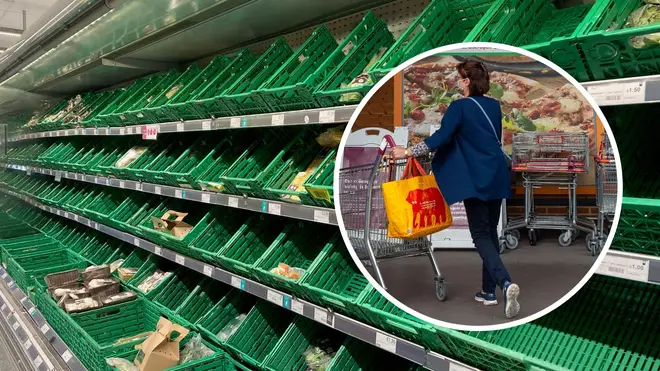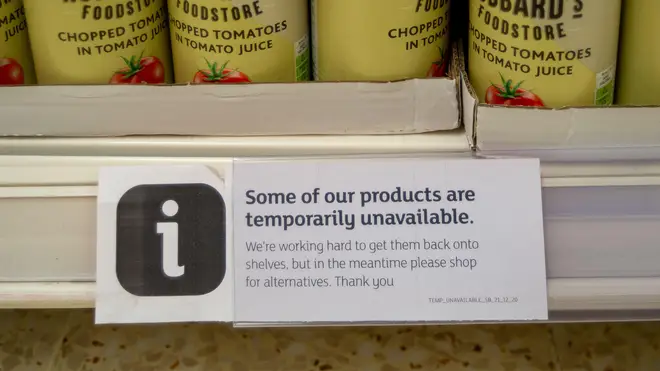
Henry Riley 4am - 7am
18 September 2021, 09:52 | Updated: 18 September 2021, 15:52

There are fears parts of the UK's food manufacturing process could grind to a halt because of soaring gas prices and a shortage of carbon dioxide.
Crisis talks between No10 and industry leaders are being held today to address the issues.
High global demand, maintenance issues and lower solar and wind energy output are being blamed on the increased cost of wholesale gas, which in turn has forced much of the UK's commercial production of CO2 to stop.
The shortage of CO2 is crucial for the production and transport of products including meat to bread, beer and fizzy drinks.

Business and energy secretary Kwasi Kwarteng was meeting with senior executives from Ofgem, Centrica, National Grid, Energy UK, Octopus, Ovo, SSE, EDF, ScottishPower, Shell Energy, E.ON, Bulb and SGN today to put plans in place to tackle the issue.
He tweeted: "Today, I'll be speaking to chief executives of the UK's largest energy suppliers + operators to discuss the global gas situation.
"Britain has a diverse range of gas supply sources, with sufficient capacity to more than meet demand.
He said they do not expect gas supply emergencies this winter but bills are likely to rise.
A former head of Ofgem said Britain is likely to face high energy prices for the rest of the year.

'I don't think people understand the impact this will have.'
The UK's supply network is already creaking due to a combination of Covid-19 and a lack of lorry drivers caused by Brexit, with shortages on supermarket shelves now a regular occurrence.
Two of the country's biggest fertiliser factories have been forced to suspend or cut production due to the lack of CO2, sparking fears of shortages on shelves.
Leaders from the food manufacturing sector have been in emergency talks with the government. Some industry figures believe stocks of the gas will run out in two weeks, and there are reports farmers will have to cull pigs because of shortages of gas needed to stun the animals before slaughter in abattoirs.
Steve Rowe, 54, chief executive of M&S, told The Times: “Clearly the potential shortage of CO2 across the food industry places added burden on an already stressed supply chain. Meat and poultry suppliers are calling for urgent action and intervention by government."
Nick Allen, chief executive of the British Meat Processing Association, said: “This could be the straw that broke the camel’s back. It is potentially a massive challenge for the food industry when we are already facing huge issues.”
"We urgently need the secretary of state for business to convene the big CO2 manufacturers to demand that they coordinate to minimise disruption, and provide information to Britain’s businesses so contingency plans can be made," he added.